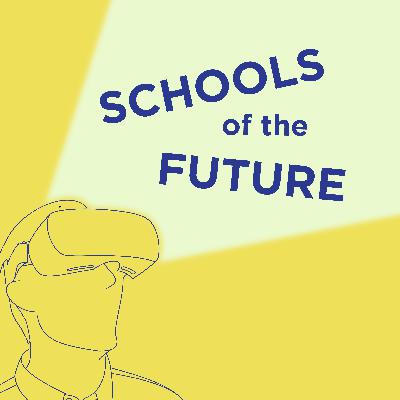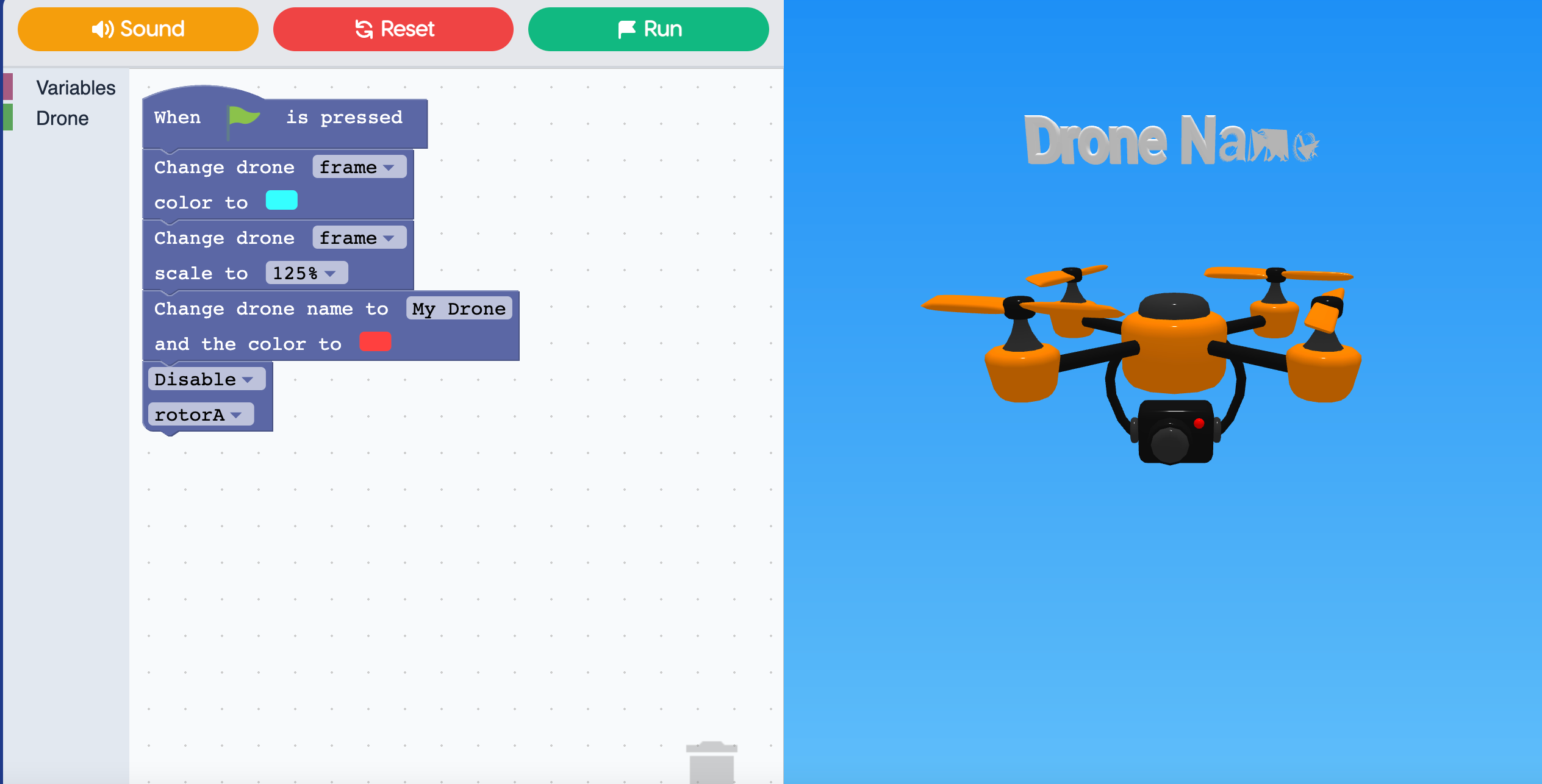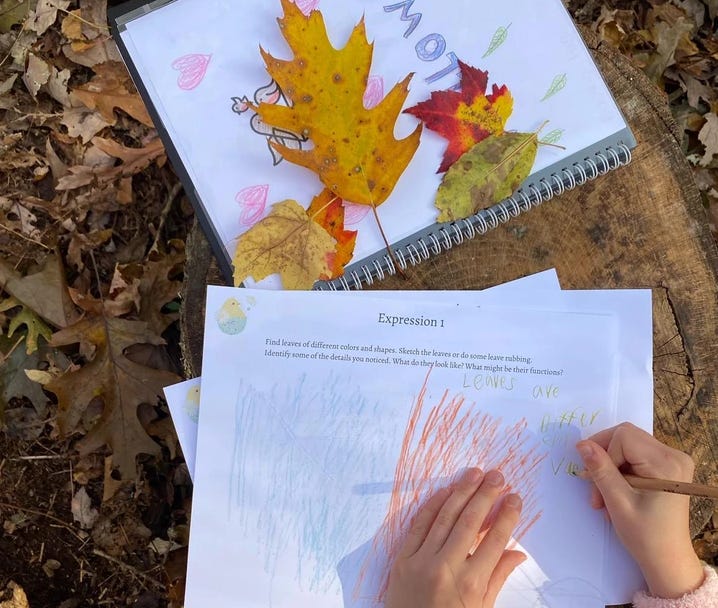Discover Schools of the Future
Schools of the Future

Schools of the Future
Author: Gleb Lantsman, Lydia Cao, Fenton Hughes
Subscribed: 0Played: 1Subscribe
Share
© Fenton Hughes
Description
Conversations with education innovators brought to you by five friends who met in online classes during the pandemic.
schoolsofthefuture.substack.com
schoolsofthefuture.substack.com
5 Episodes
Reverse
Eileen McGivney is an incoming assistant professor at Northeastern University. Just a few weeks before the recording of this episode in May 2023, Eileen successfully defended her PhD dissertation at Harvard University on VR for education. Prior to her PhD work at Harvard, Eileen was a researcher with Brookings in Washington DC and the Education Reform Initiative in Istanbul, Turkey. We spoke with Eileen about her PhD dissertation at Harvard, which focused on VR field trips. Additional show notes: Learning in the Metaverse: * Eileen mentions Learning in the Metaverse, a report she co-authored, as a helpful starting point for people who want to learn about learning with XR technologies. Where you can learn more about Eileen’s work: * LinkedIn* Her PhD dissertation is not public, but it will be published in segments via several academic journals. Follow her on LinkedIn for updates on where/when you can get access to it. This is a public episode. If you would like to discuss this with other subscribers or get access to bonus episodes, visit schoolsofthefuture.substack.com
What if you could design one year of a students four-year undergraduate degree program to help them gain the skills to launch a business, collaborate well in teams, and experience the lessons of learning through failure? That’s essentially what has happened in a program called Sandbox at Brigham Young University led by Chris Crittenden who joined us recently on Schools of the Future.Chris Crittenden founded an artificial intelligence company, which was acquired by Walmart in 2014. He worked as head of product for Walmart’s online grocery and subsequently joined Reef Capital Partners. Chris currently serves as the Managing Director of the Rollins Center for Entrepreneurship and Technology at Brigham Young University, where he leads Sandbox. Sandbox is a two-semester long, all-in entrepreneurship program for undergraduates. We discuss how Sandbox is set up, whether it’s scalable, and how it has evolved in the three years since its initial pilot. Chris explains how Sandbox helps students gain both hard and soft skills and brings learning “deeper into their bones.”About Sandbox* Program site: https://creators.byu.edu/sandbox* BYU Magazine piece on Sandbox: https://magazine.byu.edu/article/design-thinking/About Chris Crittenden* Brigham Young University faculty/staff page: https://marriott.byu.edu/directory/details?id=36931* LinkedIn profile: https://www.linkedin.com/in/chris-crittenden/ This is a public episode. If you would like to discuss this with other subscribers or get access to bonus episodes, visit schoolsofthefuture.substack.com
Our guest today is Matthew Henshall, a serial ed tech entrepreneur. Matthew serves currently as the CEO of Lessonspace and Code4Kids. Matthew previously founded Skillup, which was acquired in 2021. Code4Kids is a middle school coding curriculum powering learning experiences for thousands of students in South Africa, New Zealand, the UK, and the United States. Lessonspace is an online video and whiteboard program built specifically for tutors. For the full show notes, visit schoolsofthefuture.substack.comEpisode links:* Code4Kids* Code4Kids drone course (🤩)* Lessonspace* Room.shEpisode transcript:[00:00:29] Fent Hughes: and we're excited to be here today with Matthew Henshaw, who Is a serial ed tech entrepreneur. Matthew's the co-founder of Skill Up, which was acquired in 2020.[00:00:40] He's also founded Lesson Space, Code for Kids, and room.sh which he still runs all three of those today. So looking at LinkedIn, I can see that Matthew has like four full-time jobs which is impressive. Matthew thanks so much for being willing to share your time with us.[00:00:59] Matthew Henshaw: Yes. [00:01:00] Thanks so much for having me. And hi to your audience.Starting up and failing[00:01:04] Fent Hughes: When we talked before the call, Matthew, you mentioned that when you first started as a founder, you had a few, I think you mentioned three unsuccessful ventures before your first successful experience and I wondered if you could give us a little bit of context on your first three startups and what did you learn from that and how did those experiences affect the businesses you run today?[00:01:29] Matthew Henshaw: Mm. This that's now 2014, 2015, so a lot has happened since then.[00:01:35] I actually had started these kind of three ed tech business right out of university. It's a very popular field to go into an ed tech. And the reason for that is because education is technically all we've known for 20 years, and then all of a sudden you come out of university and you think, Oh, I wonder what it is that I want to do. And you start something in ed tech. And the first three ventures I started were all very kind of what I look back now [00:02:00] is kind of amateurish and not kind of fully committed.[00:02:03] So I was either starting something by myself for, for two of them or something with one friend for another. But I was never full time. I was doing some my own things in the background. They were all born out of problems I kind of saw in the workplace where it was a learning management system maybe it was a, in a poorer community trying to create a maths tool for them.[00:02:21] And the big learnings I got there, I think in education. There were maybe two and, and the main learning one was from an education startup perspective, and one was from a founder perspective.[00:02:32] The founder one is age old advice, so I'll, I'll share that first. It's, it's much easier to work with, with the team. You wanna have a founding team go, going at this by yourself is the, you know, the saying, if you wanna go fast, go alone. If you wanna go far, go together. I think that was true.[00:02:47] And I think the second thing in education that happens is that I think we kind of come out of education and you wanna start an EdTech startup that has, makes a lot of meaning, has a lot of impact and there's, you know, of course [00:03:00] education need to have impact.[00:03:01] That's kind of why we all do it, but I think sometimes we totally forget that it also has to be a business that makes money. And I was very focused on having this kind of impact, doing something really meaningful. And I never looked at the unit economics hard enough.[00:03:15] And I think in education it's so important, like the number one rule: if you're gonna start a education startup, make sure you make money first. Make a difference second, and, and that might be a bit controversial. But if you wanna start a business, you have to make money first. And, and really, if somebody is willing to pay you for your services, it's very likely that you are making a difference, a positive difference in their life, just by the fact that they're paying you.[00:03:38] I think things like crowd funding and NGOs, they're all good and they definitely have their place in society, but you don't wanna get too reliant on that to fund the growth of your business if that's what you are after. So the kind of big learning there was education: make sure you're making money first, make it impact Second. I got that wrong three times.On LessonSpace and Code4Kids[00:03:58] Fent Hughes: Maybe at this [00:04:00] point we could talk a little bit about the two main businesses you're running today. Matthew, could you tell us about lesson space and code for kids and how they came about and also how did they relate to each other. How, how are you finding time to do both of these?[00:04:18] Matthew Henshaw: Maybe it's worth sharing a little bit about how these two businesses started and, and why it's the way it is now. And, and kind of my advice to any founder is don't start two businesses at once, rather do one. That's not what we are doing. And, you know, that happened not by choice, but more by necessity. So we were, we had a tutoring company called Skill Up Tutors, which was a way for, it was a tutor marketplace, B2C, like Airbnb for tutors, if you like.[00:04:40] That was the business we sold last year. That was a very difficult to build. And it made a lot of sense for that acquirer to buy that business based on their unit economics. They had a much bigger access to audience, much bigger lifetime value, but we were trying to create a way for our tutors to have online lessons and we were using some off the shelf software and that software started failing us, [00:05:00] our failing our tutors, at least it wasn't working, and they kept reverting to Zoom and Skype and back.[00:05:05] So we decided, cause we were a team of engineers, decided to build our own online Zoom for education, if you like, that that's kind of how Lesson space was born. Because the skill app was, was difficult. So we decided to start kind of trying this new software as our unique selling point and we triggered a Google alert in 2017. It could have even been 2016. And that got us three customers. They all contacted us, two in America, one in Canada, and those are still our customers today. And we just realized, Oh, sharks, we could just sell software as a service. It's kind of something we really enjoy. We don't have to manage the tutors as much.[00:05:37] So that's lesson space. It's software as a service. It's a zoom for education. It, it was very fortunate to grow quite a lot during the pandemic. We were very lucky. Luck plays a big part and yeah, so that's how that started. But it started because we were kind of at a loss with Skill Up.[00:05:53] And at the same time while that was happening, I was, I had been teaching my niece to code she was 10 years old at the time. And [00:06:00] by the time my niece was 12 years old, she could pass an entrance exam as a junior software engineer for a company that required a computer science degree.[00:06:08] And she's not, you know, going to become an engineer. She's not the top of a class. She just was like, I just teaching her basic things for two years. This kind of proved to me that there was this massive gap between what was happening in the world and what was happening in the classroom. So we kind of heard that their school didn't have a computer teacher anymore.[00:06:27] So I went to say, Can we teach your kids to code? Then another school said, Hey, could you teach our kids to code? And that's kind of how code we get started. So both of those products companies kind of happen in parallel and they both happened because customers asked us for it. And they and, and then once they asked us for us, we were like, Oh, that makes sense.[00:06:44] So it was, I wish I could say we knew what we were doing. We had no idea.[00:06:47] So these two businesses, lesson, space, and code for kids, how do we run them both at the same time? Firstly with a lot of difficulty, but secondly, it's definitely for us now in that positive. And the reason for that is, the one advantage we [00:07:00] have is we don't look at a business in isolation anymore.[00:07:02] You really get the chance of looking at a business like a machine relative to one another. So you can say, Oh wow, that's working at Code for Kids. I wonder why that doesn't work at lesson space, that sales tactic or that marketing tool or that product kind of methodology. And then you can say, Sure, but that's really working well at lesson space, could we try and apply that for code for kids? Hey, we should get the sales team at each of these companies to swap notes. Why don't we get the curriculum designer and the teacher support from code for kids to have a, have a discussion? And so from that perspective, running the two companies have been very, very beneficial.[00:07:36] But it isn't what I would suggest. We're learning twice as fast, I suppose.[00:07:41] Gleb Lantsman: All right. So which of your two companies, Matthew, would you say you invest more time in and why?[00:07:49] Matthew Henshaw: That definitely varies based on kind of the needs of the business. For my position there's only really two of us who are spending time across both companies. Everyone else is very focused on their own [00:08:00] business.[00:08:00] We might, for example, be doing a massive overhaul of our lesson space outbound marketing tool. And the whole idea of this tool is to also then use it at Code for Kids. So we are doing this, a huge amount of work there right now at lesson space, and that's going very well, taking a lot of my time.[00:08:17] And when that gets done, it will transfer across to Code for Kids and that also takes on my time, but less. At the same time, Code for Kids is doing a big, a big revamp on a lot of the courses. So where am I spending mor
As the CEO of the Great Schools Platform, Bruno has a front-row seat to the world of K-12 education innovation. His company works with many schools -- ranging from pedagogically conservative to completely project based. Great Schools has designed events and other forums to encourage grassroots innovation in each school community. Lydia and Fenton talk to Bruno about a "school MVP" and how scaling works in the world of K-12 education. This is a public episode. If you would like to discuss this with other subscribers or get access to bonus episodes, visit schoolsofthefuture.substack.com
Homeschooling has been steadily growing over the years with a drastic increase during the pandemic. And even after schools reopened, many parents chose to continue homeschool their children.BirdHouse is a wholesome and joyful homeschool co-op for elementary children and their families. A homeschool co-op, short for cooperative, is a community of families who get together to facilitate learning and recreational activities, primarily for homeschooled children. In this episode, Lydia Cao, the founder of BirdHouse, spoke about how BirdHouse empowers parents to be great educators and the secrets of great learning experiences. This episode is hosted by Aliya Shaikhina and Rodrigo Medeiros.To learn more about Birdhouse visit: https://www.birdhousecoop.org/ This is a public episode. If you would like to discuss this with other subscribers or get access to bonus episodes, visit schoolsofthefuture.substack.com









